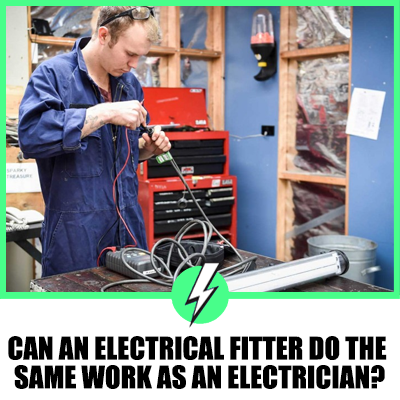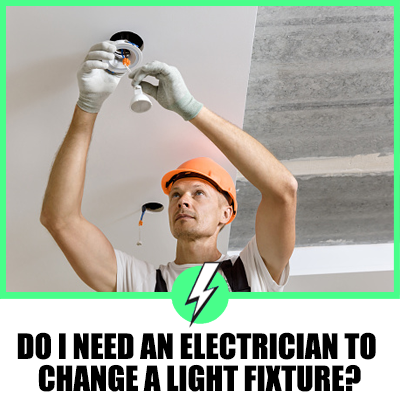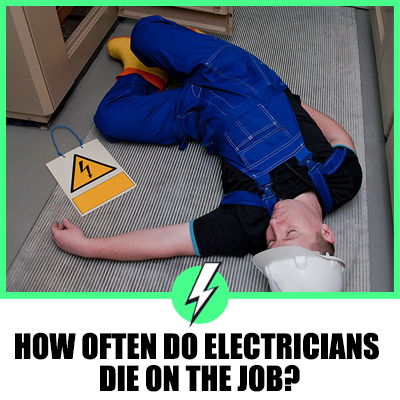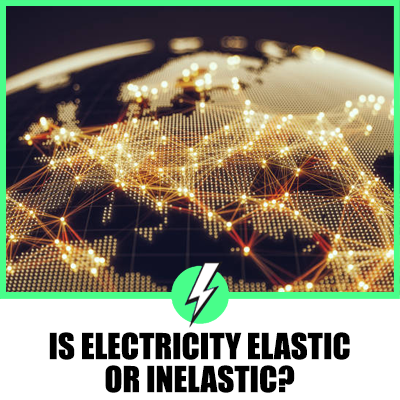Can An Electrical Fitter Do The Same Work As An Electrician?
Should you employ an electrical fitter to work on your home electrics? Does an electrical fitter have the same qualifications as an electrician?
Both professions can be very different. Electrical fitters don’t have the same qualifications as electricians. Electrical fitters work at the same site, such as a factory, as their primary workplace. They work with electrical equipment such as control panels and motors.

Contents
What is an electrical fitter in the UK?
An electrical fitter undertakes the installation and maintenance of plants and appliances in commercial and industrial facilities.
You would typically find an electric fitter working on replacing relays and switchgear in a control panel that could be the control part of a production facility.
Electrical fitters work on electric motors, maybe installing a refurbished motor or removing a motor and rewinding it.
The electrical fitter’s job is skilled and requires a lot of working knowledge, both technical and mechanical.
What education does an electrical fitter have?
To become an electrical fitter, you may just need to sit an aptitude test as no formal qualifications are really needed at the outset of training. Of course, if you have GCSE’s, the process is easier and more streamlined.
However, you will need to attend college normally as a day release student to learn the fundamentals of how electrical fitters operate and train for the job.
Before becoming an electrical fitter, you will need to attain a level 3 NVQ/SVQ in servicing electronic systems.
The apprenticeship combines academic and practical work normally run concurrently through the entire apprenticeship.
As with any electrical apprenticeship or training course, you must have good eyesight and not be colour blind.
The tasks of a fitter can be described as:
- Examine and read drawings, specifications and wiring diagrams/schematics and determine the best methodology to undertake a repair.
- Install wires by the facility’s procedures, and terminate wires by soldering, bolting or crimping as specified by the drawing.
- Install electrical conduit to facilitate the electrical cabling required for termination.
- Be proficient in the use of welding equipment and hand tools, and be able to assemble and sub-assemble components by brazing and any other method required.
- Installation of electrical plant such as machinery, appliances, electrical fixtures such as control, cabinets, fuse boxes, generators, light sockets and anything associated with the requirements of the system being worked on.
- Diagnose and fault find electrical equipment using test equipment and provide remedial action to repair the said faults
What does an electrician do?
Although you may think the jobs of an electrician and an electrical fitter are similar in nature, they are actually like chalk and cheese.
The electrician has a lot more responsibility for the power supply in the factory if this is his place of work.
If you are an electrician supporting a production facility, some of your roles may include:
- Checking electrical systems for their integrity and safety
- Design-build and install electrical control panels that provide the building with power
- Repair electrical motors and transformers in industrial machinery
- Rewiring homes, commercial premises.
You will find many electricians prefer to work in the domestic installer sector, meaning they are the electricians you find rewiring homes.
Do Building Regulations cover electrical work?
Yes. The main difference between an electrical fitter and an electrician and why you should not let a fitter near your home electrics is building regulations.
Your home is constructed to tight and strict regulations. Your electricians need to know the regulations to work on your home as a new build or repair your existing electrical system.
When you call an electrician to your home to add to your electrical system or make a significant repair, the work will have to be certified and, in some cases, notified to the local council for records and potential inspection.
What can a non-qualified electrician do?
A non-qualified electrician such as an electrical fitter can still work on your home. He can still report notifiable work to the council—however, the fee for notifying increases exponentially if you do not have the required certification and accreditation.
The fee alone runs at more than 300 pounds and would make the job uncompetitive, and this is why you only see certified electricians undertaking such work.
What accreditation should an electrician have?
The accreditation process for electricians is long and arduous and somewhat of a nightmare, so for joe public to know what your electrician should have in terms of accreditation is also like wading through a treacle.
Fortunately, most UK sparks opt to register with NICEIC, and you can normally see the sign of the spark’s van and on their business cards.
However, if you can’t see NICEIC does not mean the electrician is not accredited and competent under part p of the building regulations and can’t issue you with an EIC when the work is complete.
What qualifications will an electrical fitter have?
The electrical fitter has substantial qualifications and has indeed attended a similar amount of years of training as your electrician.
An electrical fitter should have an ECS card Electrotechnical Certification Scheme. It shows the person is competent in his field, and you can often find electrician mates with the same card that allows them to work on a construction site in a supervised environment.
What’s the difference between an electrician and an electrical fitter?
The difference is vast, and you should only allow an electrician to work on your home electrical system.
The electrician will be up to speed with electrical regulations and will know what type of cable is needed in every location in your home. The electrical fitter does not design anything, but he takes the instructions from the drawings to make machinery or appliances work.
Both individuals are smart in their respects and have a similar background, but one has a much different level of training.





